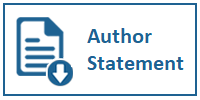The Role of Esports Organisations in Accessibility for Disability Players
DOI:
https://doi.org/10.31937/ultimacomm.v14i1.2569Keywords:
disability; accessibility; esports; new media; organisation\Abstract
The Indonesian e-sports industry cannot be separated from the role of organizations that oversee and manage all activities of e-sports players, which are expected to provide better accessibility for people with disabilities to be equal in recording achievements in the field of e-sports. This problem is closely related to the increase in internet access and the use of smartphones which are commonly used by people with disabilities, including playing games. This study aims to determine whether e-sports organizations as stakeholders provide accessibility for persons with disabilities. This study uses previous research that analyzed persons with disabilities in various roles in the new media ecosystem. Also, the fact that accessibility refers to the ability of a person with one or more disabilities to make meaningful use of media technology. Standpoint theory is the main theory as the basis and tool for analyzing the results of this study. This research uses a qualitative case study method with data collection techniques through interviews and literature studies and a post-positivist research paradigm. This study indicates that Esports Organizations in Indonesia have not been able to play a role in providing accessibility for gamers with disabilities. Of the three formal organizations, only IESPA has special attention by creating a para-Esports division for people with disabilities. Meanwhile, AVGI & PB ESI do not yet have a specific program. On the other hand, community-based informal organizations such as EAI have a great interest in being able to advocate for gamers with disabilities.
Keywords: disability, accessibility, e-sports, new media, organization
Downloads
References
Babbie, E. R. (2020). The Practice of Social Research. In Cengage (Vol. 15, Issue 2). https://doi.org/10.2307/2062956
Baker, P. M. A., Bricout, J. C., Moon, N. W., Coughlan, B., & Pater, J. (2013). Communities of participation: A comparison of disability and aging identified groups on Facebook and LinkedIn. Telematics and Informatics, 30(1), 22–34. https://doi.org/10.1016/j.tele.2012.03.004
Caschili, S., De Montis, A., & Trogu, D. (2015). Accessibility and rurality indicators for regional development. Computers, Environment and Urban Systems, 49, 98–114. https://doi.org/10.1016/j.compenvurbsys.2014.05.005
Chen, S., & Michael, D. (2005). "Proof of learning: Assessment in serious games.”
Ellcessor, E., & Ellcessor, E. (2016). You Already Know How to Use It. In Restricted Access. https://doi.org/10.18574/nyu/9781479813803.003.0003
Fell, E. (2016). Restricted Access: Media, Disability, and the Politics of Participation. European Journal of Communication. https://doi.org/10.1177/0267323116677476
Goggin, G., & Newell, C. (2002). Digital Disability: The Social Construction of Disability in New Media.
Griffin, E. (2019). A first look at communication theory (10th ed.). McGraw-Hill Education.
Muhammad, S. (2014). Pemenuhan Aksesibilitas Bagi Penyandang Disabilitas. Inklusi, 1, 269–290. http://ejournal.uin-suka.ac.id/pusat/inklusi/article/view/010208/987
Nations, U. (2018). How well are countries doing to make the world better and fairer for people with disabilities"¯?
Noer, M. K. (2016). Analisis Penyebab Terjadinya Digital Addiction pada Remaja Ditinjau dari Teori Media Entertainment. Ultimacomm: Jurnal Ilmu Komunikasi, 8(2), 1–24. https://doi.org/10.31937/ultimacomm.v8i2.945
Nuzuli, A. K. (2020). Faktor yang Memengaruhi Efektivitas Komunikasi antar Pemain Game Online PUBG. Jurnal Komunikasi Global, 9(1), 20–41. https://doi.org/10.24815/jkg.v9i1.15775
Orbe, M. P. (1998). Constructing co-cultural theory: An explication of culture, power, and communication. Sage Publications.
Orbe, M. P., & Roberts, L. T. (2012). Co-cultural theorizing: Foundations, applications & extensions. Howard Journal of Communications, 23(4), 293–311.
Primus, J. (2020). Esports Jadi Olahraga Prestasi, Ini Harapan KONI. https://www.kompas.com/sports/read/2020/08/27/19562788/esports-jadi-olahraga-prestasi-ini-harapan-koni
Seale, C. (2012). Generalising from Qualitative Research. In The Quality of Qualitative Research. https://doi.org/10.4135/9780857020093.n8
Tjokrodinata, C., Rizky, C., Bangun, A., & Dinansyah, F. (2022). Gamers with Different Ability and the role of EAI (E-Sports Ability Indonesia). Jurnal Interaksi"¯: Jurnal Ilmu Komunikasi, 6(1), 52–66. https://doi.org/10.30596/interaksi.v6i1.8162
Vanri, K. F., & Hasbiyalloh, B. Y. (2012). Games Online dan Katarsis Virtual. Jurnal ULTIMA Comm, 4(2), 35–54. https://doi.org/10.31937/ultimacomm.v4i2.206
West, R., & Turner, L. H. (2019). Introducing Communication Theory. In Making Sense of Messages.
Downloads
Published
How to Cite
Issue
Section
License
Ultimacomm Jurnal Ilmu Komunikasi allows readers to read, download, copy, distribute, print, search, or link to its articles' full texts and allows readers to use them for any other lawful purpose. The journal allows the author(s) to hold the copyright without restrictions. Finally, the journal allows the author(s) to retain publishing rights without restrictions
1. Authors are allowed to archive their submitted article in an open access repository
2. Authors are allowed to archive the final published article in an open access repository with an acknowledgment of its initial publication in this journal














